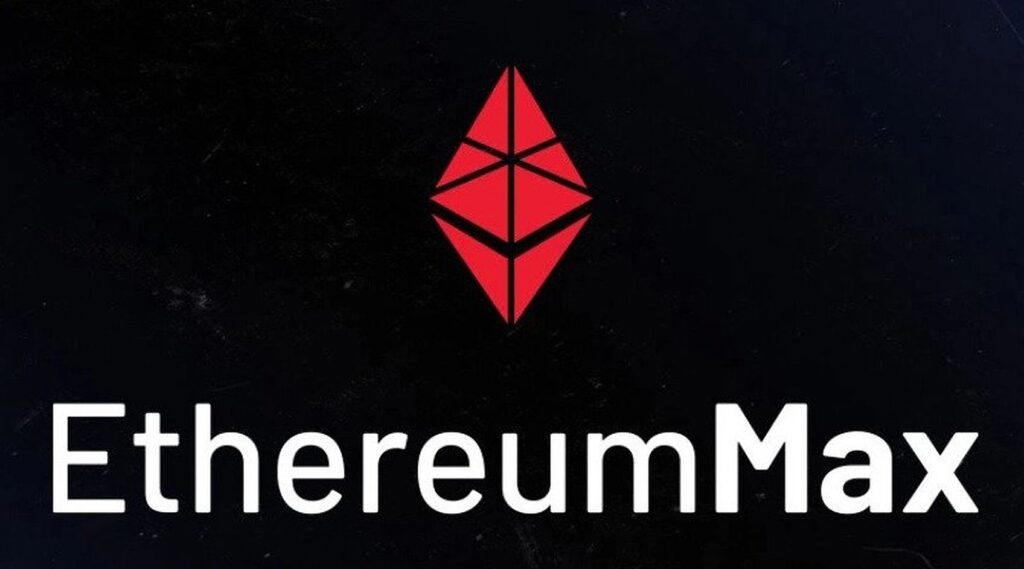A blockchain linked to Binance, the world’s largest crypto exchange, has been hit by a $570 million hack, a Binance spokesperson said on Friday, the latest in a series of hacks to hit the crypto sector this year.
Binance CEO Changpeng Zhao said in a tweet that tokens were stolen from a blockchain “bridge” used in the BNB Chain, known until February as Binance Smart Chain.
Blockchain bridges are tools used to transfer cryptocurrencies between different applications. Criminals have increasingly targeted them, with some $2 billion stolen in 13 different hacks, mostly this year, researcher Chainalysis said in August.
The hackers stole around $100 million worth of crypto, Zhao said in his tweet. BNB Chain later said in a blog post that a total of 2 million of the BNB cryptocurrency – worth around $570 million – was withdrawn by the hacker.
The majority of the BNB remained in the hacker’s digital wallet address, while about $100 million worth was “unrecovered,” the Binance spokesperson said by email.
BNB Chain supports BNB, formerly known as Binance Coin, which is the world’s fifth-largest token with a market value of over $45 billion, according to data site CoinGecko.
Elliptic, a London-based crypto blockchain researcher, told Reuters that the hacker had minted 2 million new BNB tokens before transferring most of the funds to other cryptocurrencies including Tether and USD Coin.
BNB Chain suspended its blockchain for several hours before resuming at around 0630 GMT, it said in a tweet.
BNB Chain was “able to stop the incident from spreading” by contacting the blockchain’s “validators,” – entities or individuals who verify blockchain transactions, it said in its blog post. There are 44 validators across several different time zones, it added without elaborating.
BNB Chain, described by Binance as a “community-driven, open-sourced and decentralized ecosystem,” said it would introduce a new “governance mechanism” to counter future hacks, as well as expand the number of validators.
In March, hackers stole around $615 million from a blockchain bridge called Ronin Bridge, in one of the largest crypto heists on record, linked by the United States to North Korean hackers.
Celsius Network’s co-founder and chief strategy officer Daniel Leon has stepped down, the bankrupt crypto lender said on Tuesday, joining a wave of executive departures from beleaguered digital asset companies.
The announcement comes a week after chief executive officer Alex Mashinsky’s resignation. Leon’s departure was first reported by CNBC.
Hoboken, New Jersey-based Celsius filed for Chapter 11 bankruptcy in July, a month after freezing withdrawals citing extreme market conditions.
Lenders such as Celsius boomed in lockstep with the surge in popularity of major cryptocurrencies like Bitcoin, as they offered interest rates much higher than traditional banks and easy access to loans.
However, the collapse of digital tokens terraUSD and luna, coupled with a tough macroeconomic environment, tested their business model and eroded customers’ optimism.
Voyager Digital Ltd, another major U.S. crypto lender, also filed for bankruptcy in July.
Follow Crypto Intelligence on Google News to never miss a story
The Middle East and North Africa are the world’s fastest-growing cryptocurrency markets, with the volume of crypto received in the region jumping 48% in the year to June, blockchain researcher Chainalysis said in a report on Wednesday.
While the MENA region is one of the smallest crypto markets, its growth to $566 billion received in cryptocurrency between July 2021 and June 2022 shows adoption is rising rapidly.
Latin America saw the second biggest growth in the same period, at 40%. North America was next at 36% growth, followed closely by Central and Southern Asia and Oceania at 35% growth, Chainalysis said.
Three MENA countries are among the top 30 in Chainalysis’ 2022 Global Crypto Adoption Index, with Turkey in 12th place, Egypt taking the 14th spot and Morocco 24th.
“In Turkey and Egypt, fluctuating cryptocurrency prices have coincided with rapid fiat (traditional) currency devaluations, strengthening the appeal of crypto for savings preservation,” Chainalysis said.
The Turkish lira has weakened nearly 30% this year to new record-lows, after losing 44% of its value last year amid a currency crisis triggered by rate cuts.
Turkey tops the MENA region in terms of value of crypto received by far, having received $192 billion worth of crypto in the year to end-June, though only saw 10.5% year-on-year growth.
Egypt’s currency has also lost about a quarter of its value against the dollar at the start of the year.
“Remittance payments account for about 8% of Egypt’s GDP, and the country’s national bank has already begun a project to build a crypto-based remittance corridor between Egypt and the UAE, where many Egyptian natives work,” Chainalysis said.
The six countries of the Gulf Cooperation Council “seldom make it to the top of our grassroots crypto adoption index, as it weighs countries by purchasing power parity per capita, which favours poorer nations,” Chainalysis said.
“Nevertheless, their role in the crypto ecosystem should not be underestimated. Saudi Arabia, for example, is the third-largest crypto market in all of MENA, and UAE is fifth.”
Afghanistan, which was 20th in Chainalysis’ adoption index last year, has tumbled to the bottom of the list as Taliban authorities have “equated crypto to gambling,” which is forbidden in Islam, Chainalysis said.
From November 2021 to now, Afghanistan-based users received less than $80,000 in crypto a month on average from $68 million a month on average before the Taliban’s takeover, Chainalysis said.
Dubai will transform into the ultimate digital epicenter of the world next month as the UAE hosts the world’s largest tech show, converging the most advanced companies and best minds to deep-dive into the making of the Web3 economy.
From Oct. 10 to 14, 2022 at the Dubai World Trade Center, Gitex Global returns for its largest-ever edition, featuring 5,000 companies spanning 26 halls and 2 million square feet of exhibition space. The size difference is an extraordinary 25% year-on-year increase, pushing its capacity limit at the venue.
The Gitex 3.0 edition in its 42nd year presents the most empowering curation ever with seven multi-tech themes experimenting in the Metaverse, a decentralized future of the internet, and a sustainable global digital economy. Gitex sets to wow with the year’s biggest and most immersive Metaverse experience across multiple sectors, from music, fashion and sports to lifestyle and business
Gitex Global 2022’s scale reflects digital ambitions of UAE and the region
The five-day event’s record size and continued expansion mirrors the ambitions of the UAE and region’s digital transformation movement, as government initiatives such as the National Program for Coders, the Dubai Metaverse Strategy and Next GenFDI propels the UAE to the forefront of the global digital economy.
This is amplified by Gitex Global 2022’s new launches of X-Verse sponsored by TMRW Foundation in collaboration with Decentraland — one of the world’s most immersive Metaverse journeys featuring 28 experiential brands — and Global DevSlam, the Middle East’s largest-ever coder and developer meetup, both of which sold out to a global audience within two months.
UAE companies also held the lion’s share of a record-breaking $2.6 billion in startup funding across the Middle East and North Africa in 2021, figures that underscore an additional hall and 30% increase to 1,000 exhibitors at Gitex Global’s startup event, North Star.
His Excellency Omar Al Olama, Minister of State for AI, Digital Economy and Remote Work Applications, who delivered the welcome note at the official Gitex Global 2022 press conference today, said: “Gitex this year is bigger than ever. It spans 2 million square feet with over 5,000 exhibitors from more than 90 countries, which makes this truly the biggest tech show in the world. This year, my office has partnered with Gitex to ensure that we’re not just showcasing technology, but actually inventing and developing technology.”
In his speech, Al Olama also highlighted that the Global DevSlam event is poised to be one of the biggest developer events in the world. He concluded by thanking each and every single person that has believed in the UAE’s mission and who has supported the UAE.
Global interest accelerates UAE and region as a rising tech hub of the world
Gitex Global 2022 will welcome an unprecedented 52% new exhibitors this year choosing the show and the UAE as the first-choice partner in their market access strategies.
The influx of global interest will see North Star hosting the biggest Unicorn meetup of the year in Dubai, with 35 Unicorns from 15 countries looking to explore new opportunities and expand in one of the world’s fastest-growing markets.
Influential UAE entities inspire R&D in transformative technologies
UAE companies are shaking up the global tech scene with their bold undertakings and commitments in tech R&D and inventions, including Technology Innovation Institute (TII) a leading global scientific institution and the applied research pillar of Abu Dhabi’s Advanced Technology Research Council. TII will have a significant presence at Gitex Global showcasing AI and Digital Science, Directed Energy and Autonomous Robotics Research.
Gitex also unifies the participation of 250 government entities leading strategic digital projects and public-private partnerships, with Digital Dubai Authority and Abu Dhabi Digital Authority among the UAE government bodies advancing smart city and digital projects.
More information is available on the website.
About Dubai World Trade Center
With a vision to make Dubai the world’s leading destination for all major exhibitions, conferences and events, DWTC has evolved from being the regional forerunner of the fast-growing MICE industry into a multi-dimensional business catalyst, focusing on venues, events and real estate management. Complementary to the primary service offerings are a range of value-added services from media/advertising, engineering and technical consultation and wedding planning, security services and hospitality.
The Financial Stability Oversight Council (FSOC), a U.S. regulatory panel comprising top financial regulators, on Monday recommended that Congress pass legislation addressing risks digital assets pose to the financial system, including bills to bolster oversight of crypto spot markets and stablecoins.
In a report following U.S. President Joe Biden’s executive order this year “on Ensuring Responsible Development of Digital Assets,” the panel identified three gaps in the regulation of cryptocurrencies: limited oversight of the spot market for tokens that are not securities; opportunities for regulatory arbitrage, or taking advantage of favorable rules; and whether crypto firms should be allowed to integrate multiple services traditionally provided by intermediaries, like broker-dealers and clearing houses.
The report was published after an FSOC meeting on Monday.
In a statement, Treasury Secretary Janet Yellen said the report “provides a strong foundation for policymakers as we work to mitigate the financial stability risks of digital assets while realizing the potential benefits of innovation.
Although FSOC has previously urged Congress to regulate issuers of stablecoins like banks, Monday’s report included several new recommendations for legislators, including that they create a federal framework for stablecoin issuers to address market integrity and consumer protection.
FSOC’s report follows a slate of others that were released last month in connection with the White House’s executive order. In September, the Biden administration published a series of reports recommending that U.S. government agencies double down on digital asset sector enforcement and identify holes in regulation.
It remains unclear when Congress might pass crypto-related legislation, although several bills have been introduced to address stablecoins and digital commodities regulation.
The FSOC report also suggested Congress pass a bill to provide rulemaking authority to federal financial regulators over the spot market for cryptocurrencies that are not securities, in order to address conflicts of interest and abusive trading practices.
Lawmakers should also consider legislation that gives regulators authority to supervise activities of crypto firms’ affiliates and subsidiaries, which FSOC said could address regulatory arbitrage, the report said.
Cheelee is a short video platform with Watch&Earn mechanics that pays all users for viewing the feed. To get rewarded for watching the app’s smart feed, users will need a pair of nonfungible token (NFT) glasses.
The fundamental difference between Cheelee and other projects (move-to-earn or play-to-earn) is its focus on the social media market audience of 4.6 billion people rather than a limited crypto audience. Cheelee plans to attract the first billion people within four years, providing a growing monthly inflow of users.
The stability of Cheelee’s financial system is additionally secured by non-NFT-related income sources, including advertisements, in-game purchases and brand collaborations. These account for 30% of the total revenue, while in alternative projects, they only make up 1%. In addition, Cheelee will be directing 70% of advertisement revenue, in-app purchases and 100% of revenue from NFT sales and in-app transactions to the Stability Fund.
Another important advantage of the project is that users can earn by using Cheelee without having to make any investments at the beginning. Once the user registers their Web3 wallet in the application, they will receive a case containing Starting NFT Glasses. To earn more, users can upgrade their Starting NFT Glasses or buy new — even Rare —NFT glasses.
Rare NFT glasses, which generate more tokens than the Starting ones, can already be purchased. Starting on Oct. 24, the project’s team is giving away 500 pairs of Rare NFT glasses in cases. To participate in the giveaway, follow the link and complete the task. The results will be announced on Nov. 25 on the project’s social media accounts.
Learn more about the project on official Cheelee resources:
- Website: https://cheelee.io/
- Twitter: https://twitter.com/Cheelee_Tweet
- Discord: https://discord.gg/cheelee
The blockchain and nonfungible token (NFT)-focused video game studio Vulcan Forged has secured $8 million in Series A funding led by SkyBridge Capital. The venture capital fund has the option to invest an additional $33 million.
The funding is aimed at accelerating the growth of Vulcan Forged “Metascapes,” a play-to-earn immersive metaverse game that allows users to build their land in the metaverse and store that data in nonfungible tokens. In addition, the funding will be used to grow Vulcan’s operations in North America and other markets. Currently, Vulcan Forged has about 15 games and decentralized applications (DApps), with about 200,000 users.
The gaming studio pushed out several Web3 games in the recent past, some of them being Berserk, Forge Arena and VulcanVerse. However, they’re currently heavily concentrated on MetaScapes, which allows users to design and build their own metaverse spaces and store the data in NFTs.
Jamie Thomson, founder and CEO of Vulcan Forged, says their product saw rapid organic growth over the last two years, and their headcount grew to over 130 people from just two workers. During this time, MetaScapes acquired over 200,000 users across 15 games. Thomson said:
“As we look to expand into new markets like North America and open our office in New York City, we believe that now is the perfect time to capitalize on our momentum with a strategic investment from Anthony Scaramucci and his team at SkyBridge Capital.”
Anthony Scaramucci, founder and managing partner at SkyBridge Capital, also commented:
“Jamie is a brilliant entrepreneur and has impressed me as he bootstrapped Vulcan Forged from a small startup to a top 10 metaverse project in the last two years, with a strong commitment to their growing community.”
“Vulcan Forged and their MetaScapes engine are well-positioned to completely disrupt the legacy gaming and entertainment industries and we are excited to help take them to the next level.”
The studio’s main goal with this product is to compete with Mojang’s Minecraft in the long run.
To learn more about this project, please visit its website.
Kim Kardashian has promoted everything from appetite-suppressing lollipops to melon-flavored liqueur to toilet paper, but it was her foray into the murky world of cryptocurrencies that got her into hot water.
The reality television star and influencer has agreed to settle charges of unlawfully touting a crypto security and to pay $1.26 million in penalties and fees, the U.S. Securities and Exchange Commission said on Monday.
Kardashian, who has 330 million followers on Instagram and 73.7 million followers on Twitter, failed to disclose that she was paid $250,000 by crypto company EthereumMax to publish an Instagram post about its EMAX tokens, the SEC said.
The SEC in November 2017 warned celebrities looking to cash in on the emerging digital asset space that U.S. rules require they disclose when they are being paid to endorse crypto tokens.
Since then it has pursued a handful of other celebrities, including action film star Steven Seagal, music producer “DJ Khaled” and boxer Floyd Mayweather Jr. for breaking that rule, but Kardashian is arguably the most high profile. read more
Her post contained a link to the EthereumMax website, which provided instructions for potential investors to purchase EMAX tokens. “Sharing what my friends just told me about the EthereumMax token!” the post read.
Under U.S. law, people who tout a certain stock or crypto security need to disclose not only that they are getting paid to do so, but also the amount, the source and the nature of those payments, SEC Chair Gary Gensler said on Monday.
“This was really to protect the investing public – when somebody is touting that stock and whether that’s a celebrity or an influencer or the like, and that’s at the core of what this is about,” Gensler said in an interview with CNBC.
“I want to acknowledge Miss Kardashian cooperating and ongoing cooperation. We really appreciate that,” Gensler added.
Kardashian has agreed to pay the charge without admitting or denying the SEC’s findings. Her lawyer Michael Rhodes said Kardashian was pleased to have resolved the case.
“She wanted to get this matter behind her to avoid a protracted dispute. The agreement she reached with the SEC allows her to do that so that she can move forward with her many different business pursuits,” Rhodes said in a statement.
Follow Crypto Intelligence on Google News to never miss a story
One innovative new Web3 project is seeking to break through new barriers by combining nonfungible tokens (NFTs) with real-world luxury Swiss timepieces, in-person masterminds and a vibrant digital community of visionaries, changemakers, high-net-worth individuals and blockchain enthusiasts.
The project, called Legion, consists of 333 NFTs. The mint happens on Thursday, Sept. 29, and demand was strong for this project during the presale phase. As of writing, over 110 NFTs have been sold by the founders through their personal networks. The price of each Legion NFT is 4.44 Ether (ETH) as of the mint.
“I call it a unicorn offer,” said co-founder Stefan Georgi, “because every time we share Legion with the right people, they want to be a part of it.”
Legion is the brainchild of futurist and exponential entrepreneur Jonathan Foltz, luxury watchmaker Craig Shah, entrepreneur and blockchain adviser Stefan Georgi, and genius brand creator Umer Hadeed. The team seeks to merge the worlds of luxury e-commerce, live events and digital communities in a way that’s never been done before. Further, their goal is to help drive society’s transition from Web2 to Web3 by getting everyday people to see how NFTs can have massive real-world utility.
“The use cases here are insane,” said Shah, founder of Craig Shelly watches in Beverly Hills and a partner in Legion, adding, “With many NFT projects, you’re getting some cool artwork and access to a Discord channel, but that’s it. With Legion, the watch alone is valued at $6,000 minimum. People routinely pay $25,000 to be part of good masterminds. And the community we’ve built around the project is second-to-none.”
How Legion plans to revolutionize the world of in-person masterminds and event
To partner Foltz, it’s the community and network aspect that’s most exciting. “For those who don’t know, masterminds are essentially just ‘get-togethers’ where like-minded people work together to achieve a common goal. In the case of Legion, our mastermind community is filled with leaders in Web3, e-commerce, investing, exponential technologies, real estate and other industries, all collaborating and sharing ideas and opportunities.
Here’s the unique part, though: Because membership is held through the Legion NFT, people can buy or sell a membership to this community at any given time on secondary markets like OpenSea. This hasn’t been done before in the world of in-person masterminds, but it’s going to become the norm.”
The Legion NFT reveal will be happening at a live party for all Legion holders on Oct. 8, 2022, in Las Vegas. For anyone interested in finding out more about the Legion project, including the team and its roadmap for 2023 and beyond, you can go to www.wearelegion.xyz.
“I’ve worked on some incredible projects with companies like Samsung, Coca-Cola, Nokia and Huawei,” said Hadeed, co-founder of Legion, adding, “But I don’t know if anything has ever had me more excited. This project truly has the potential to accelerate the transition from Web2 to Web3. And it’s going to be fascinating to watch.”
The Legion NFT project at a glance
Real-world Swiss watch drop and claim:
333 luxury watches directly from Switzerland — from our partnership with renowned Swiss watchmaker Craig Shelly.
- 321 Watches — $6,000 value each.
- 11 watches — $20,000 each.
- 1 Tourbillon watch worth $150,000.
- Randomly selected upon reveal.
- Each watch is fully custom, sequentially numbered and to never be built again.
In-person masterminds:
- Oct. 8 NFT reveal event in Vegas (PGA Tour events from Oct. 6 to 9).
- March and September 2023 NFT members-only masterminds.
13 digital masterminds:
- From December 2022 to December 2023.
- Digital masterminds for collaboration, networking and building.
- The biggest players in Web3, blockchain, marketing, the investment space, business development and technology — all together in one place.
Legionnaire-based NFT art by world-class artists:
- Combining the classic Legion style with a futuristic look and feel.
- Each one of these magnificent art pieces is your portal into the Legion community.
NFTs are tradable on secondary markets:
- OpenSea
- Rarible
- Other Ethereum-based NFT marketplaces.
The timeline and sequence of events
- NFT Mint: Pre-reveal — Sept. 29, 2022, happening at https://www.wearelegion.xyz/
- NFT Reveal: Oct. 8 at 8 pm in Las Vegas. Part of an NFT holders-only event at the PGA Tour from Oct. 6 to 9.
- Luxury Swiss timepiece claim: Dec. 1, 2022, to Jan. 31, 2023.
- Monthly digital masterminds: December 2022 to December 2023.
- 2 in-person masterminds: March and September 2023.
Media Contact
About Legion
It is founded by Jonathan Foltz, Stefan Georgi, Umer Hadeed and Craig Shelly. The founders have extensive knowledge and experience in e-commerce, innovative product design, blockchain development and the private mastermind event space.
Trading volumes between the British pound and the cryptocurrency bitcoin spiked to a record high after sterling dropped on Monday, according to market data firm Kaiko Research, in what analysts said was likely a rush by investors to dump their sterling for the digital asset or profit from arbitrage.
The pound fell to a record low against the dollar on Monday, having plunged the previous Friday after the UK government announced unfunded tax cuts.
The volume of transactions in the bitcoin-sterling trading pair across eight major exchanges globally spiked to a record high of 846 million pounds ($920 million) on Monday, according to Kaiko Research, compared with an average of around 54.1 million pounds a day so far in 2022.
The surge was likely due to traders swapping sterling for bitcoin, said James Butterfill, head of research at crypto firm CoinShares.
“There is a high correlation to bitcoin volume growth and political/monetary instability,” he said.
Butterfill said spikes have previously occurred in other currencies’ crypto trading volumes, such as the Russian ruble and Ukrainian hryvnia, but that he had never seen such big moves in the bitcoin-sterling pair’s volume.
Conor Ryder, research analyst at Kaiko, said the data suggests cryptocurrency markets reacted to the volatility in fiat currencies. When sterling crashed on Sept. 26, “opportunistic investors rushed to crypto exchanges offering BTC-GBP to try and profit via arbitrage from any mispricing of bitcoin across the major fiat currencies,” he said in emailed comments.
Follow Crypto Intelligence on Google News to never miss a story













